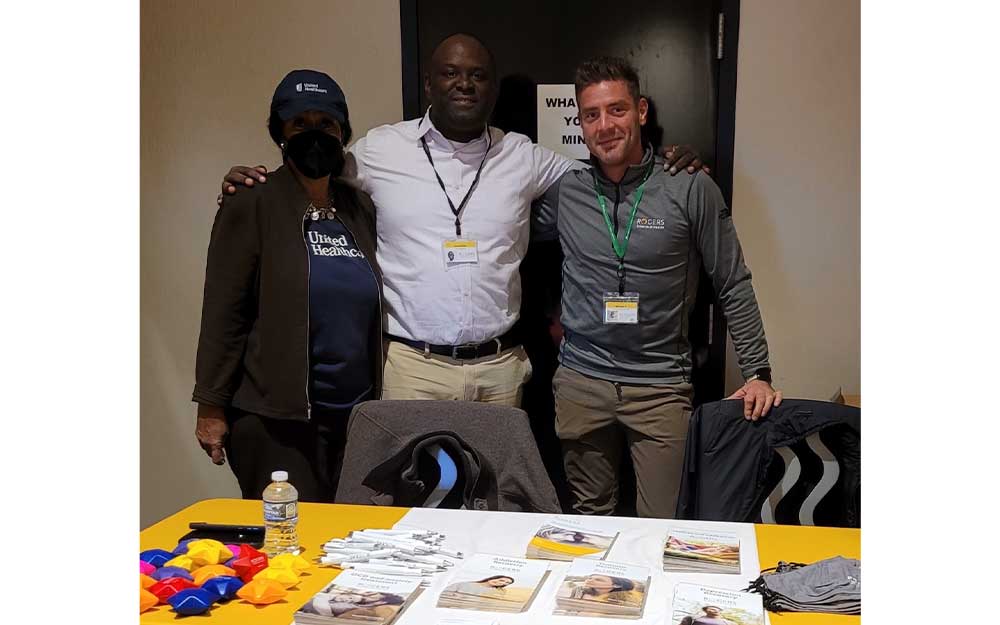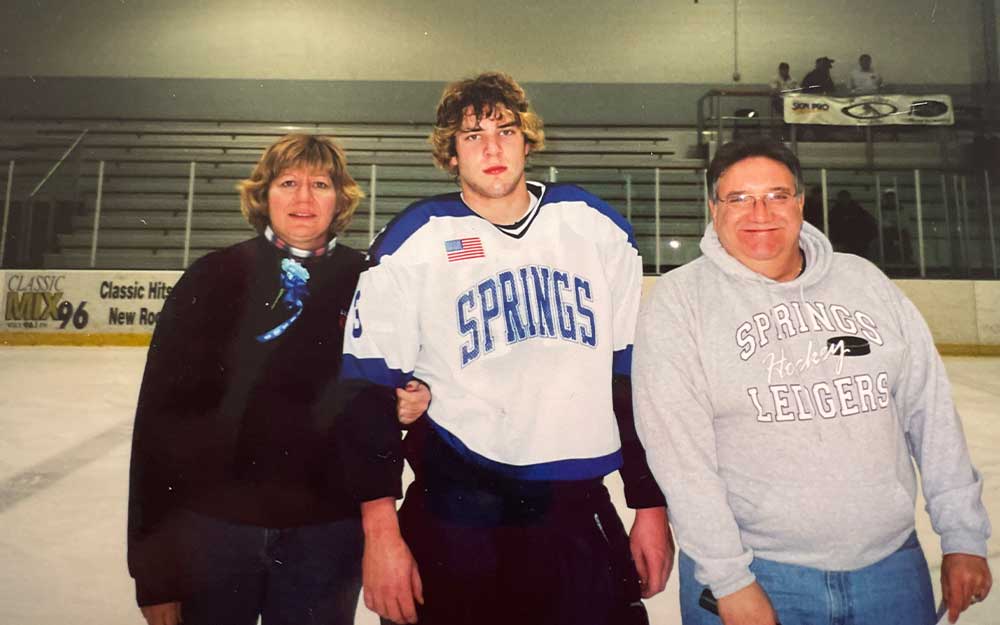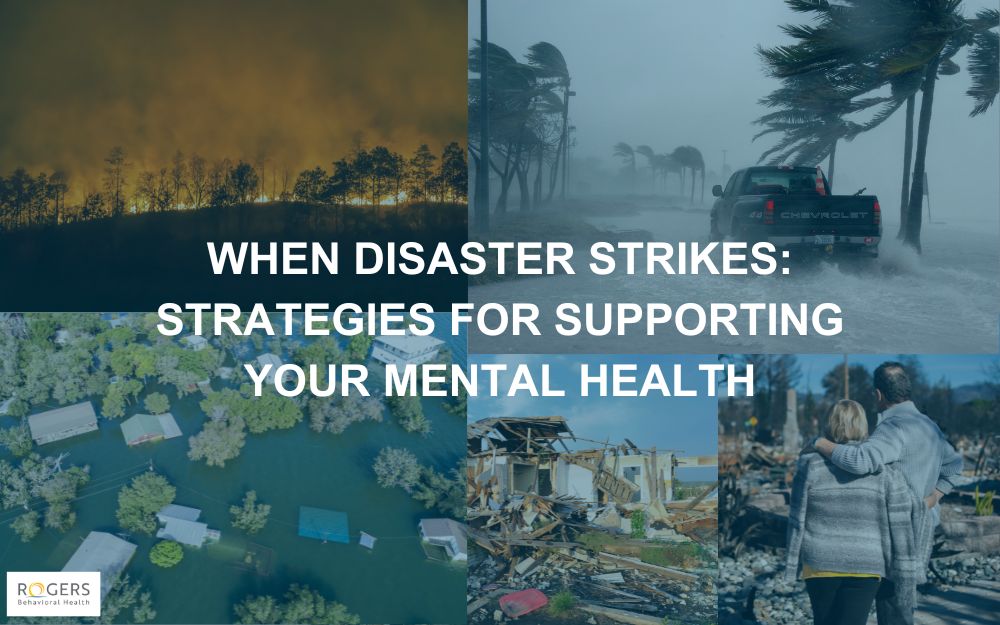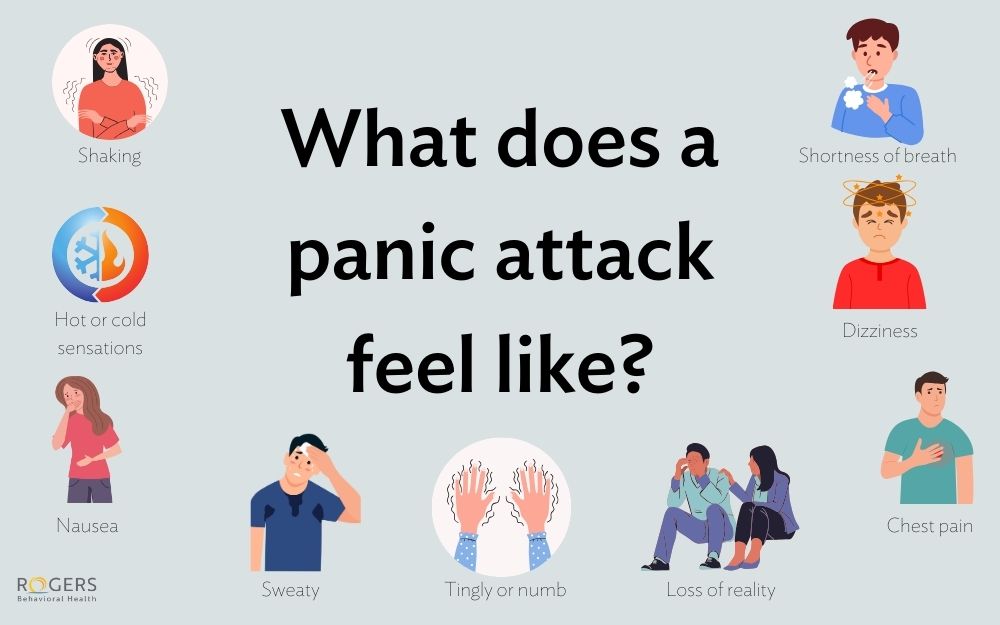Rogers teammate, Michael Beyer, shares his journey to sobriety for Alcohol Awareness Month
Posted on 04/04/23 11:51:am
Share this article:
Michael Beyer says he knew he had a problem with alcohol in his late 20s.
“My buddies started having families,” Michael says. “I was the guy who would go out seven nights a week with seven different friends depending on who had a night free. I started to think I was lagging behind and I thought I knew why, but I fought it.”
Michael says he wouldn’t admit to himself that he had a problem with alcohol and he also didn’t consider quitting or receiving treatment.
Then in 2017, just prior to his nephew’s first birthday party, Michael stopped drinking.
“I had a withdrawal seizure in front of my entire family,” he says. “I didn’t know you could have those. I went to the hospital and at first, no one knew why it happened. As the cause slowly became clear, I received intensive outpatient treatment. At that time, I looked at it like a class you had to take back in school when you got into trouble.”
Michael says there was a span of three years where he was sober about 75% of the time.
“I went to three different residential treatment programs and was hospitalized I think another ten times over the next couple of years,” he says.
During his last residential stay, Michael says things started to change for him.
“I finally listened to everything people told me,” he says. “From residential, I went to partial hospitalization, intensive outpatient treatment, and sober living. That continuum of care allows you to slowly reacclimate as a different person in society. If it’s possible, I think you need a separation from your surroundings, and a pretty severe one for an extended period of time. You need to consider medication and focus on your mental health, then you can step down into partial hospitalization and start living a little more of a traditional life as you continue to do the things you’re scared to do without substances. Intensive outpatient care allows you to go to work so you have one foot in the real world and can gradually get out there. I took it slow and tried not to push it.”
Michael says a big part of his recovery has been discovering what he’s passionate about and giving it his all. For him, that’s working in the mental health and addiction field at Rogers, where he is the director of outreach for Rogers' Eastern and Western Service Areas.
“As a result of my own lived experience, my life’s mission changed rather drastically. I went from pursuing financial success to utilizing the skills I’ve been blessed with to connect people with the type of care that saved my life,” he says. “As I worked to get sober, I continued to go back into fields where I didn’t have any emotional connection, and I would immediately start feeling disingenuous, which would lead me back down the path of alcoholism. I tried to change everything else but work, which I finally did the last time I was in treatment.”
Michael says unlike many places that offer help for addiction, Rogers focuses on the mental health challenges that can occur simultaneously.
“You need to take the substance use away while helping someone with their mental health,” he says. “Rogers has the expertise in both areas. Straightening out someone’s mental health is how they change the trajectory of their life.”
For a person struggling with addiction, Michael understands that the thought of living a life without substances is not easy and the first step is asking for help.
“You have to say you’re struggling,” he says. “Once you go somewhere for treatment, it’s really rewarding. It’s a transformative experience for any human being. It’s cutting through the shame and the guilt and just asking for help. My advice is to just try. If you put in the work, a lot of people will surround you and are willing to work with you.”
Michael is sharing his story in the hopes it will help someone else and reduce the stigma around substance use and mental health disorders.
“I think people need to be more vocal about being in recovery,” he says. “Telling our stories provides real hope and is a tether to the recovery part of the journey. People being willing to share openly is how stigma starts to change.”
How Rogers can help
If you or a loved one are struggling with substance use, Rogers is here to help. Click here to read about our evidence-based approach to treatment, levels of care, and quick facts about addiction, use our insurance pricing calculator, and hear how Rogers treats mental health in addition to substance use disorders.
Call 800-767-4411 for a free, confidential screening for inpatient and residential treatment in Wisconsin, and intensive outpatient care nationwide.








